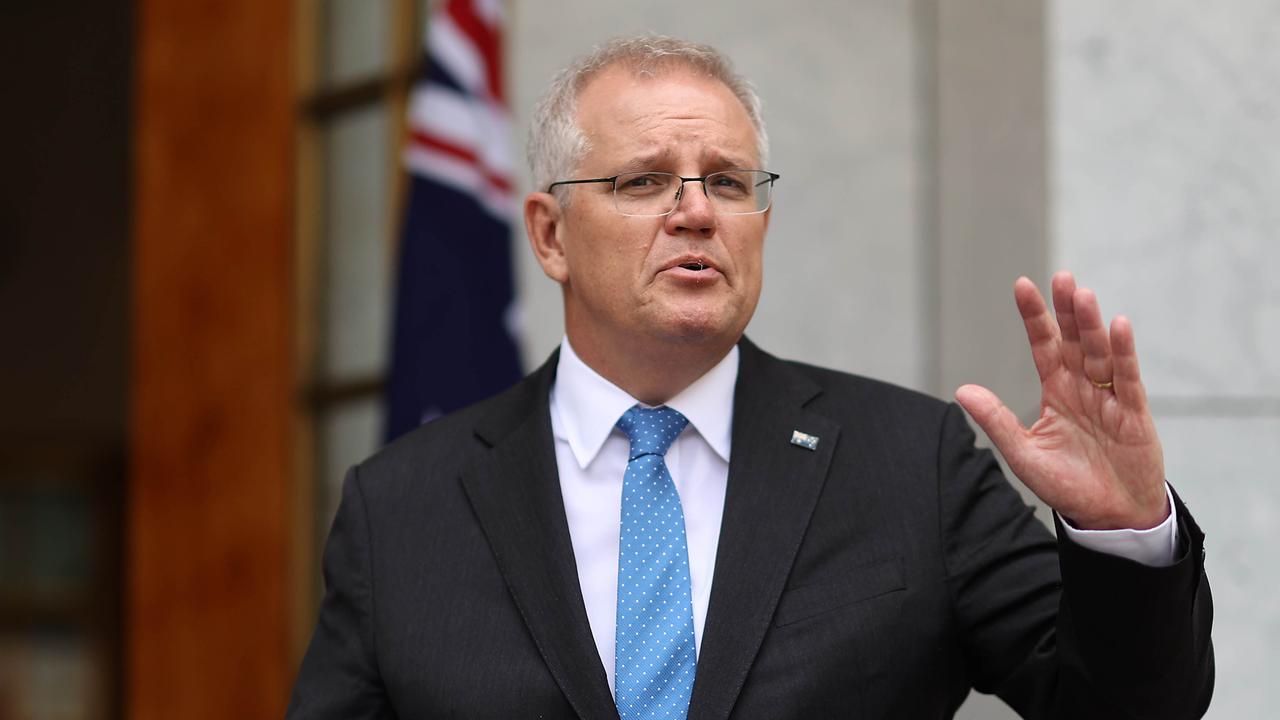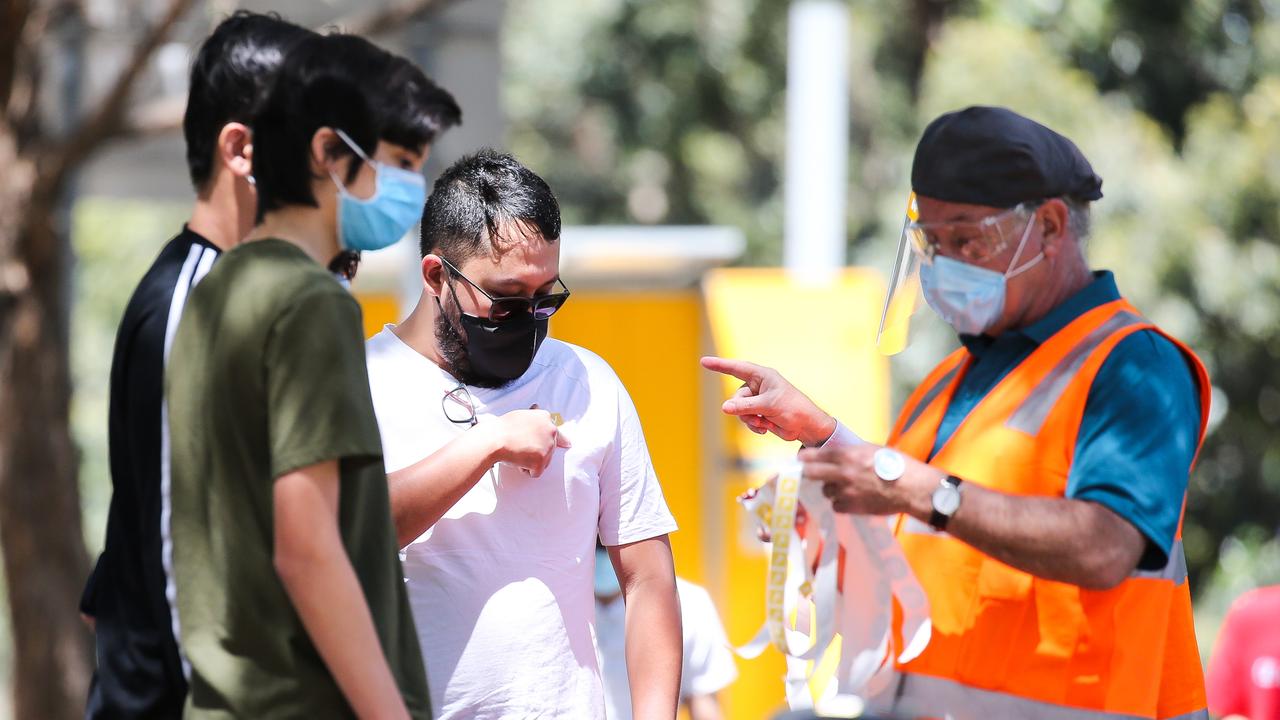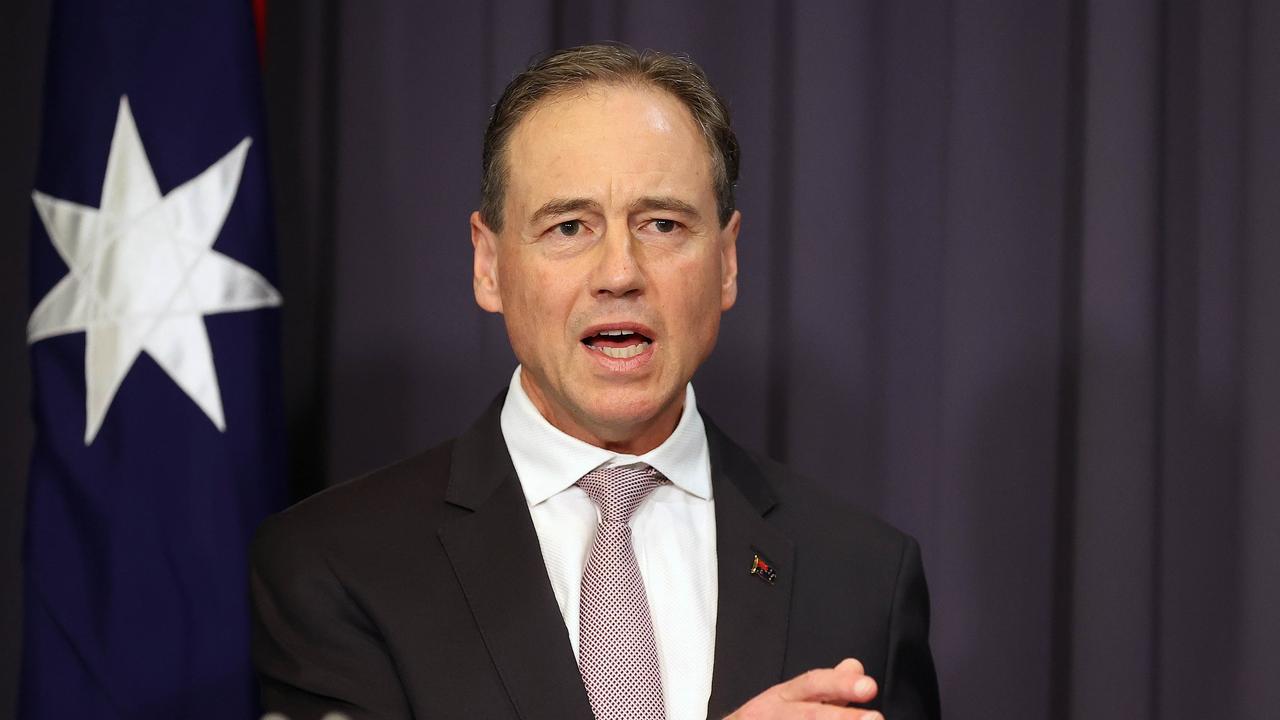Scott Morrison confirms November 8 start date for Pfizer booster program in Australia
All Aussies will get access to a third Covid jab starting next month but how much extra protection does getting a booster actually provide?
National
Don't miss out on the headlines from National. Followed categories will be added to My News.
Australians over the age of 18 years old will be able to access booster shots of the Pfizer vaccine starting on November 8.
Prime Minister Scott Morrison confirmed the timing of the rollout of booster shots on Thursday.
He said there would be a focus especially on aged care and healthcare workers but emphasised it was an all-population booster program.
“There are enough vaccines to do it,” Mr Morrison told reporters.
It comes after the Therapeutic Goods Administration (TGA) provisionally approved the Pfizer vaccine for use as a booster in people aged 18 years and over.
Health Minister Greg Hunt said the Australian Technical Advisory Group on Immunisation (ATAGI) had recommended booster shots be provided to the whole population.

Mr Hunt said priority access to booster shots would be focused on aged care and disability, but they would be available to anyone who had received their second jab more than six months ago.
“We have enough vaccines in the country to vaccinate everybody who comes due and as your six months has passed, then you will be able to be eligible to come forward,” he told reporters.
A booster, or third shot, of the vaccine is thought to be particularly beneficial for those aged 60 and over. They have already been made available to severely immunocompromised people.
While Pfizer is the only vaccine approved as a booster so far, the government says it will consider the possibility of allowing other vaccines to be used if they apply for approval.
This is what we know about the booster and why we should get it.
How much does protection drop?
The ability of vaccines to prevent hospitalisation remains very high even after six months but protection against getting Covid does fall.
Research published in The Lancet this month found protection provided by two doses of the Pfizer vaccine against being infected by the Delta fell from 93 per cent at one month after vaccination, to 53 per cent after four months.
Effectiveness against hospitalisation remained high, at 93 per cent, over the eight months of the study.
How much does a booster help you?
Experience in places like Israel appears to show that protection can be topped-up by getting a third dose.
Israel was the first country to launch a mass booster campaign, with more than 3.9 million getting a third dose, after authorities noticed increasing rates of infection among those aged 60 years and over.
Infections now appear to have dropped ten-fold, falling from more than 10,000 a day in late August and early September, to just a few hundred.
A study published in the New England Journal of Medicine found rates of infection among those aged 60 years and over were 11.3 times higher in those who had not been given a booster shot, and rates of severe illness were 19.5 times higher.

When should you get it?
The TGA’s provisional approval suggests people can receive a third dose at least six months after they’ve completed their initial first two doses.
Those who are severely immunocompromised (aged 12 and over) can already get a third dose 28 days after the second dose.
From November 8 anyone who has had their second dose more than six months ago will be able to get a third dose.
Boosters will be rolled out directly to people living in residential aged care facilities and people with a disability through an in-reach program.
Are there any side effects?
According to The Conversation, early reports have observed similar side effects to the first shots (mostly pain and fatigue).
Can pregnant women get the booster?
TGA head Professor John Skerritt told reporters on Wednesday that five studies have shown there is no impact on pregnancies from the vaccines and there was no evidence to suggest the booster would be any different.
“So, it won’t be, to use a medical word, contraindicated in pregnancy,” he said.
Is mixing and matching vaccines OK?
Prof Skerritt said there were now probably dozens of studies that mixing vaccines, for example getting two shots of AstraZeneca and then one Pfizer booster, gives a good immune response.
He said regulators were now a lot more confident about the value of mixing vaccines than they were earlier in the year.
Will booster shots be mandatory?
At this point it is not mandatory for workers in particular industries or travellers to get the third shot.
Health Minister Greg Hunt told reporters on Wednesday that “at this stage, there’s no plan or intention” for a booster shot to be mandatory for certain industries.
If you do get a third dose it would be recorded on the immunisation register but won’t be part of the vaccination certificate.

Will we need to get more boosters?
Unfortunately this is not a question that experts can answer at this stage as it’s unclear how long the booster will provide protection.
“Unfortunately the answer is we’ll have to wait and see,” TGA head Professor John Skerritt said.
How long will we have to wait for a kids vaccine?
The US’s Food and Drug Administration has recommended the use of Pfizer shots for those aged five to 11, meaning children in America could be offered the vaccine as early as next week.
But Prof Skerritt said the Pfizer application for use in children was not yet complete in Australia.
“We’re expecting to get a full application in the coming week or two,” Prof Skerritt said.
“It will take a few weeks but I would hope that we get there by the end of November but it really does depend on when we get the full application from Pfizer, the complete version, and if there’s any issues.”
Prof Skerritt also pointed out that the US Centres for Disease Control still needed to assess the application, which will likely happen in early November, before it is rolled out.
– With AFP
Originally published as Scott Morrison confirms November 8 start date for Pfizer booster program in Australia









